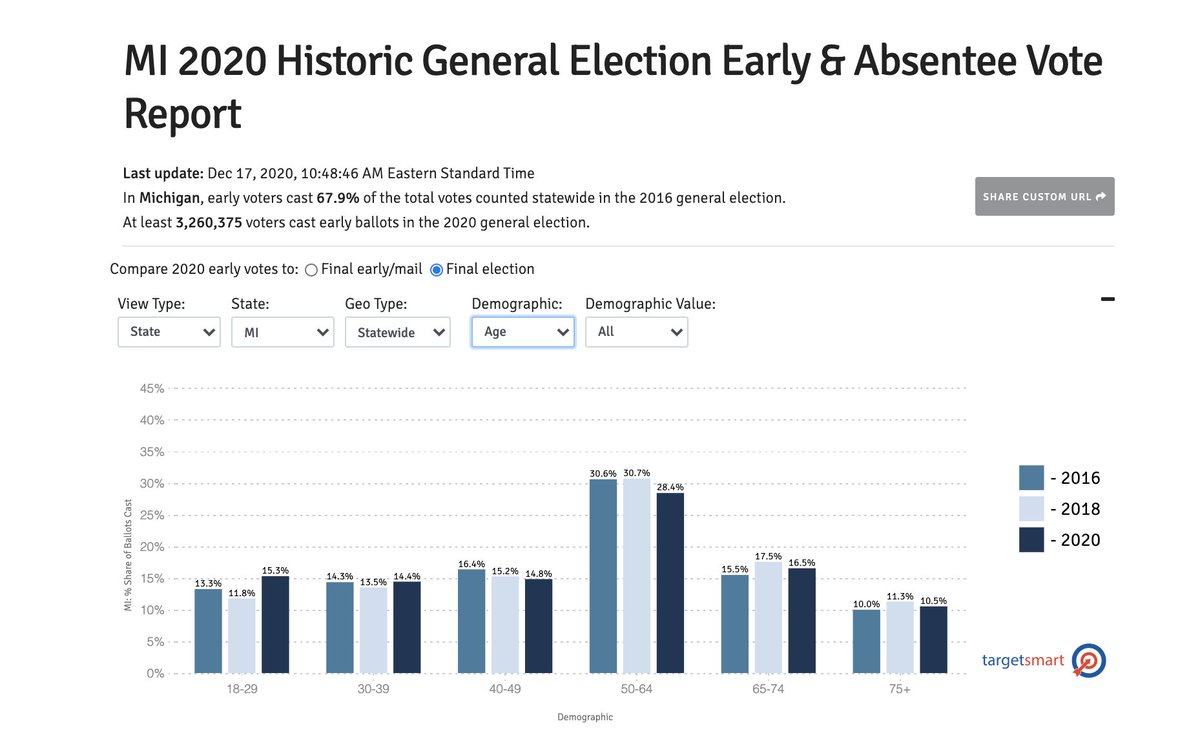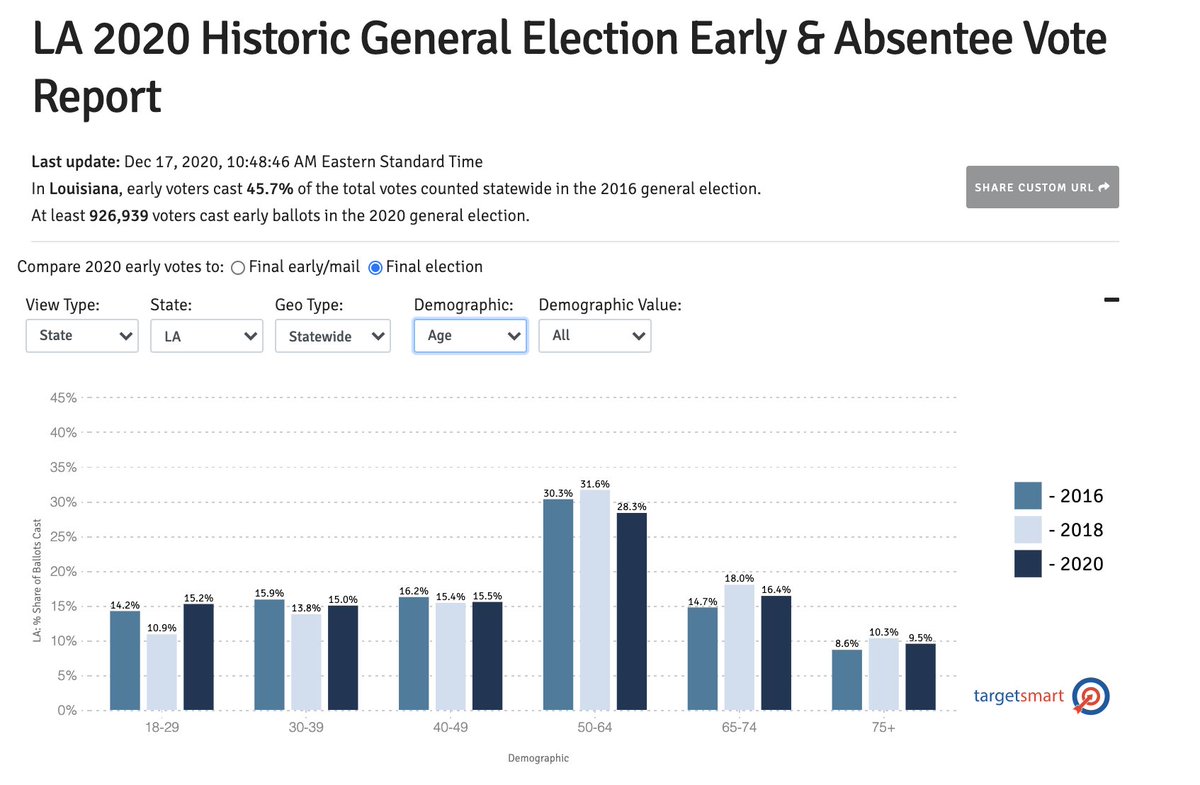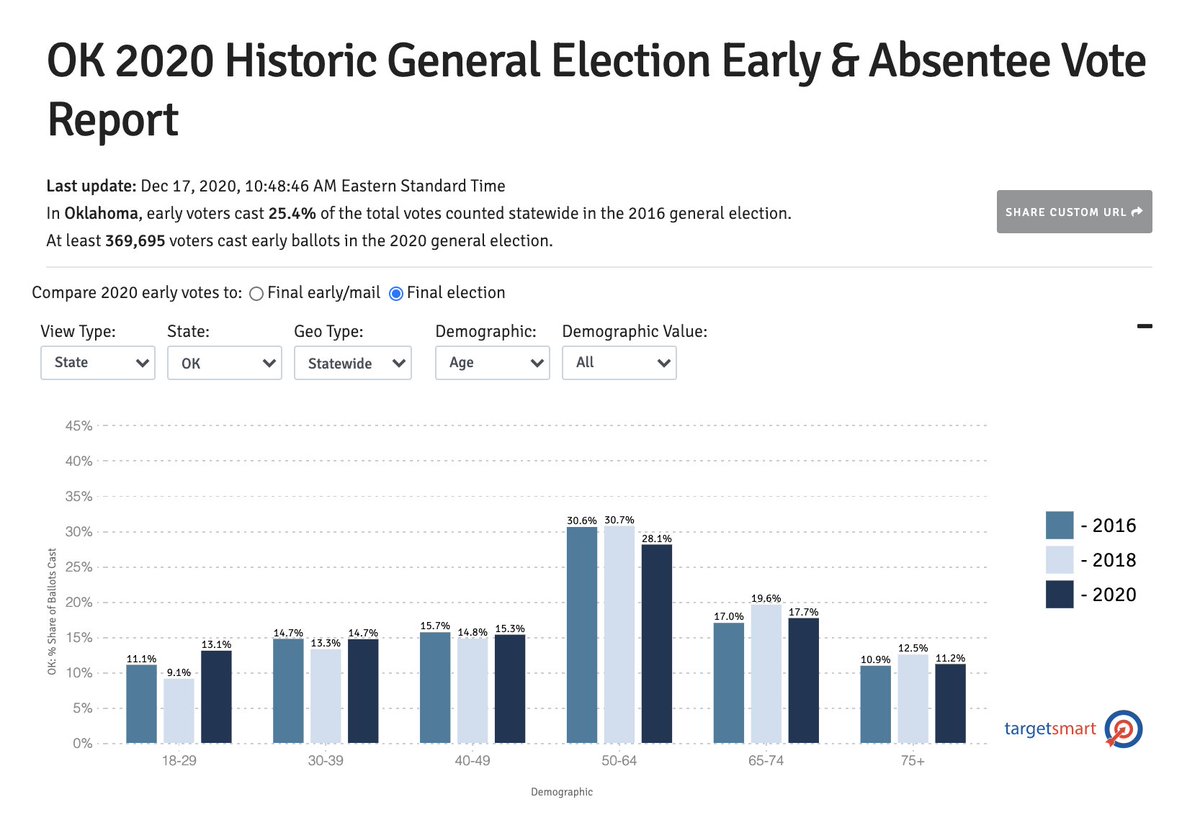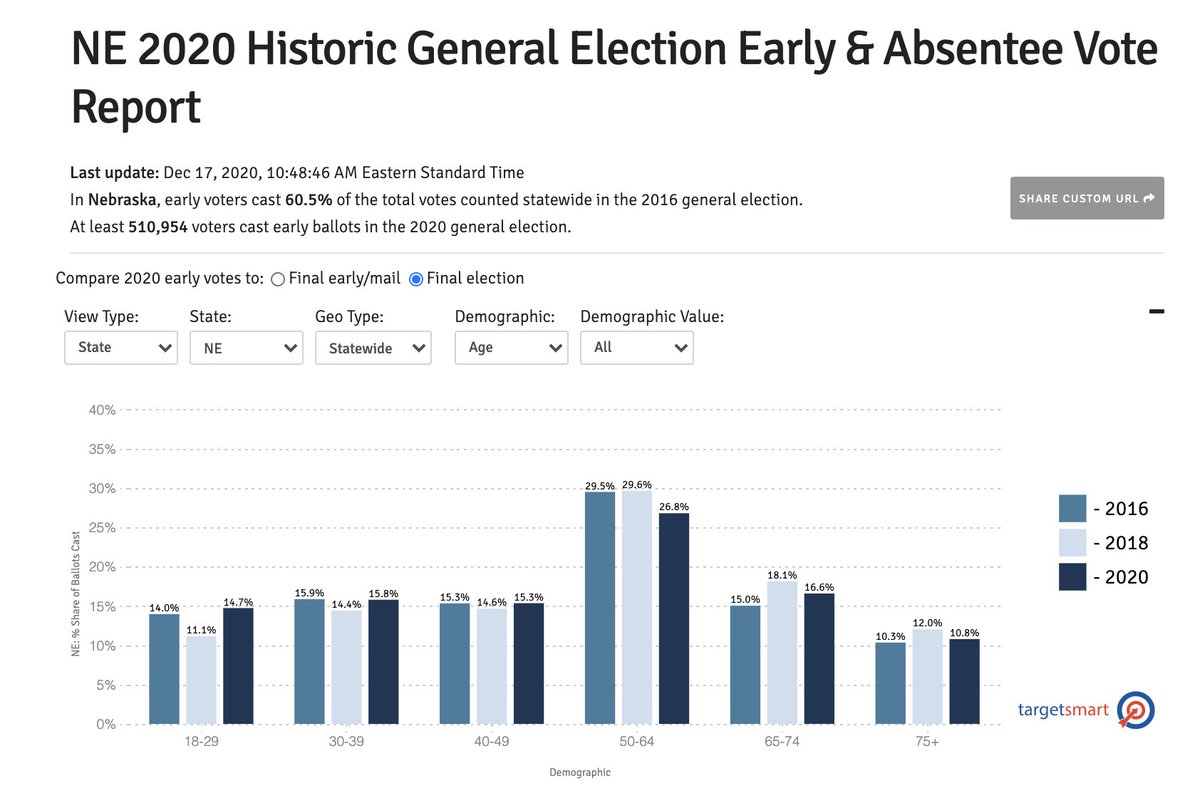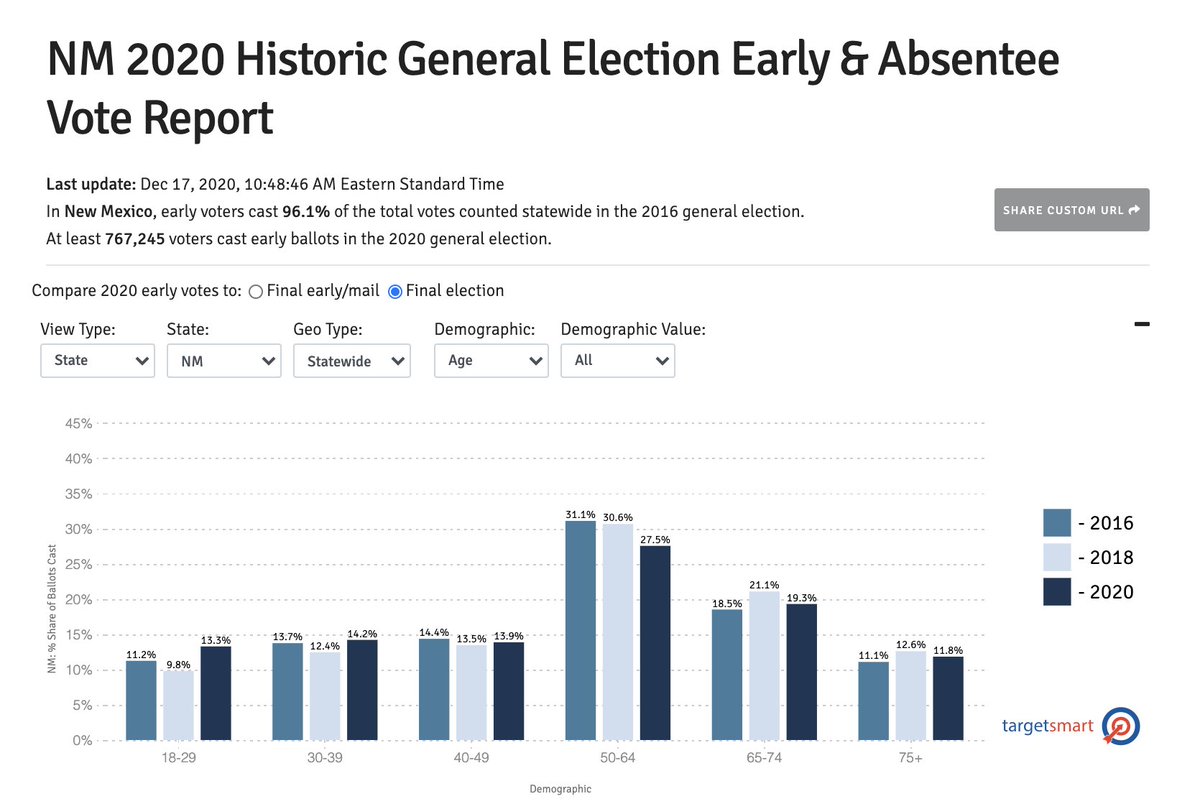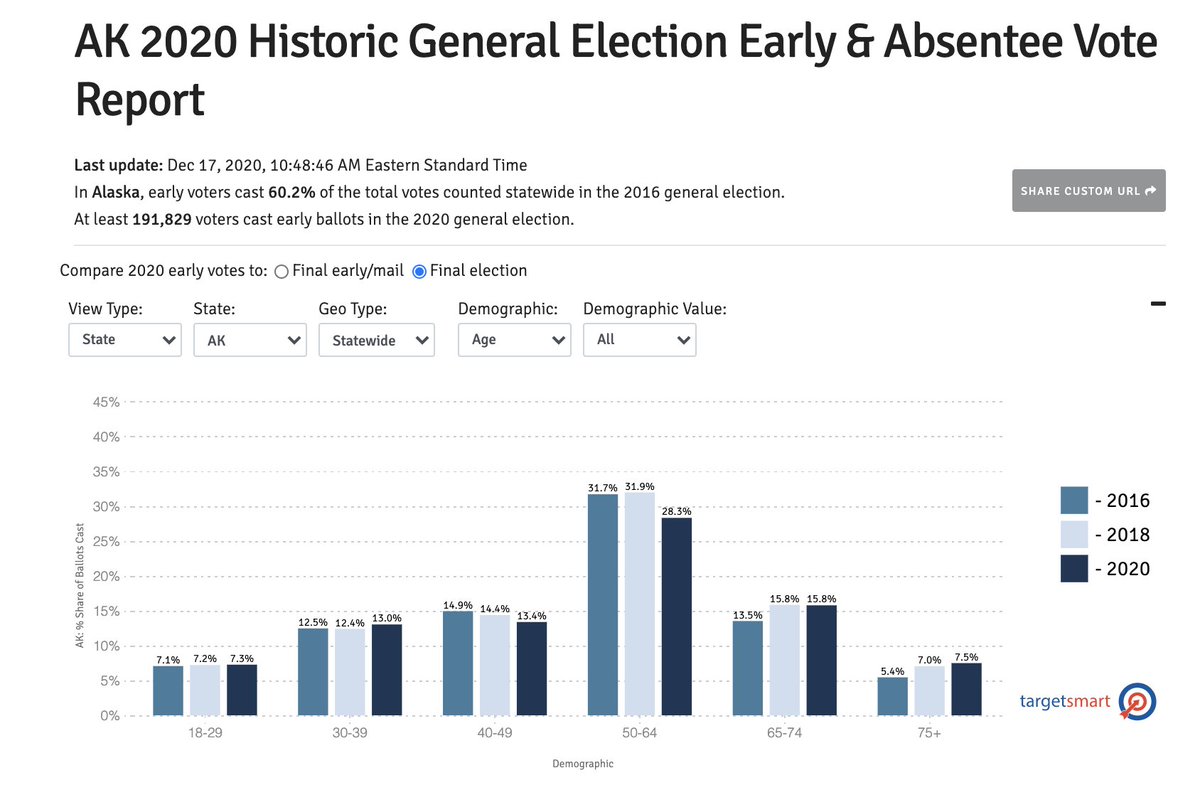
Early in person turnout in GA has exceeded general election early turnout for each of the first two days. Some of this (8.4% of early in person) is mail voters from the general switching to early in person.
A small share of early in person voters from the first two days of voting didn't vote in the general - 6.352 voters. These "new" voters are modeled at +9.4 Dem, as compared to the overall early voting universe, at +3.8 Dem.
It's difficult to draw conclusions from comparing the runoff early turnout to the general, as we will undoubtedly see people switching vote modes. But we can say that Black voters are accounting for a larger share of the vote now, relative to this same point in the general. 

For this to not be an indicator of an enthusiasm advantage among Black voters, you would have to believe that more white voters are abandoning mail voting in favor of in-person, which is possible, but seems less likely.
• • •
Missing some Tweet in this thread? You can try to
force a refresh

